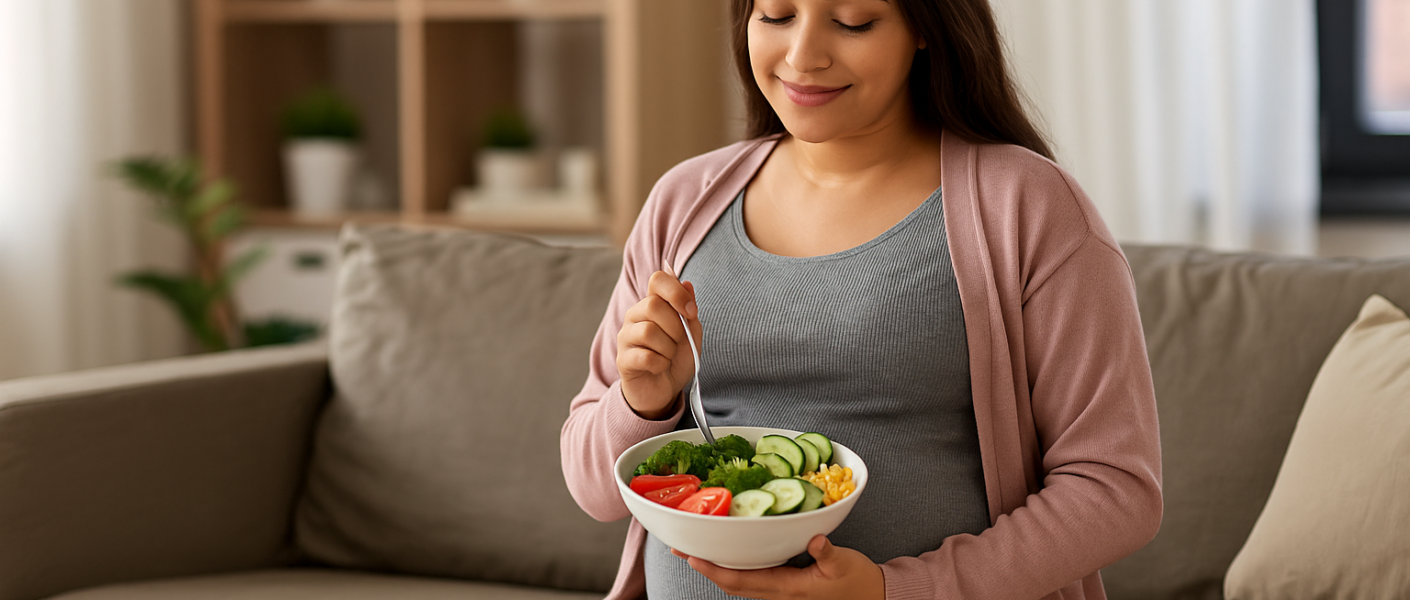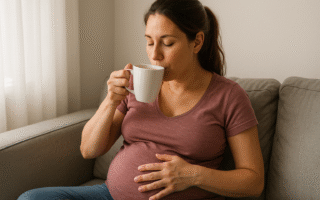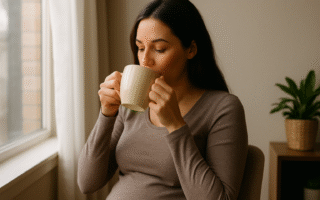Why is it important to avoid certain foods during pregnancy? Pregnancy is a transformative and delicate time when everything you eat can directly affect your baby’s development. Some foods that are perfectly safe for most people can pose health risks for pregnant women and their babies. These risks include bacterial infections, exposure to harmful chemicals, and even developmental issues.
Risks include:
- Foodborne illnesses like listeriosis and toxoplasmosis
- Exposure to mercury or BPA
- Hormonal disruptions from certain additives
- Higher chance of miscarriage or preterm labor in some cases
Being mindful of your diet isn’t about creating fear—it’s about staying informed and empowered to make the best choices for you and your baby.
What raw or undercooked foods should I avoid?
During pregnancy, your immune system is more vulnerable to infections. Raw and undercooked foods may carry harmful bacteria or parasites.
Raw or undercooked foods to avoid:
- Raw fish (like sushi or sashimi): May contain parasites and bacteria such as Listeria, Salmonella, and Vibrio.
- Undercooked meat: Risk of Toxoplasma, E. coli, and Listeria infections.
- Raw eggs: May contain Salmonella. Avoid foods like homemade Caesar dressing, raw cookie dough, and some hollandaise sauces.
- Unpasteurized dairy and juices: These can harbor harmful pathogens like Listeria and E. coli.
Always choose fully cooked versions and pasteurized products to reduce your risk of foodborne illness.
Are certain fish dangerous during pregnancy?
Yes. While fish is a great source of protein and omega-3 fatty acids (which are good for your baby’s brain development), some types contain high levels of mercury or other contaminants.
Fish high in mercury to avoid:
- Shark
- Swordfish
- King mackerel
- Tilefish (from the Gulf of Mexico)
Safer fish options:
- Salmon
- Sardines
- Anchovies
- Tilapia
- Cod
Eat no more than 2–3 servings of low-mercury fish per week and always cook it thoroughly.
Can I eat deli meats and hot dogs during pregnancy?
Deli meats and hot dogs are considered risky unless they are heated until steaming hot. These foods can be contaminated with Listeria monocytogenes, which can survive in cold environments and pose a serious threat during pregnancy.
To stay safe:
- Heat deli meats and hot dogs to 165°F (74°C) before eating.
- Avoid refrigerated pâtés and meat spreads.
- Choose shelf-stable or canned alternatives if heating is not an option.
Should I avoid soft cheeses during pregnancy?
Not all soft cheeses are unsafe, but unpasteurized versions can carry Listeria. This bacterium is especially dangerous in pregnancy and can lead to miscarriage, stillbirth, or newborn infection.
Avoid if unpasteurized:
- Brie
- Camembert
- Roquefort
- Queso fresco
- Feta
- Blue cheese
Check labels carefully—if the cheese is made from pasteurized milk, it is generally considered safe.
Are caffeine and herbal teas safe during pregnancy?
Caffeine in moderation is usually safe during pregnancy, but excessive intake has been linked to increased risks of miscarriage and low birth weight. Herbal teas, though often seen as natural, aren’t all safe during pregnancy.
Recommendations:
- Limit caffeine to 200 mg per day (about one 12-ounce cup of coffee).
- Avoid herbal teas such as those made with licorice root, sage, or pennyroyal.
- Safe teas include ginger, peppermint, and some blends specifically labeled “pregnancy-safe.”
Always check with your healthcare provider before using any herbal products.
What about alcohol and pregnancy?
There is no safe amount of alcohol during pregnancy. Even small amounts can increase the risk of fetal alcohol spectrum disorders (FASD), which can affect the baby’s physical and cognitive development.
Avoid completely:
- Beer
- Wine
- Spirits (hard liquor)
- Alcohol-infused desserts
Opt for alcohol-free alternatives like sparkling water, mocktails, or pregnancy-safe kombucha alternatives (ensure pasteurization).
Can I eat liver and organ meats?
Liver is rich in iron and vitamin A—but too much vitamin A (specifically in the retinol form) can cause birth defects. Consuming liver or liver products regularly during pregnancy may lead to unsafe levels.
Recommendation:
- Limit liver consumption to no more than once a month.
- Choose other sources of iron like lentils, leafy greens, or fortified cereals.
Are there any fruits or vegetables I should avoid?
Most fruits and vegetables are highly beneficial during pregnancy, but certain ones require extra caution.
Caution with:
- Unwashed produce: Can carry Toxoplasma and other harmful pathogens.
- Sprouts (alfalfa, clover, mung bean): May contain bacteria like Salmonella or E. coli even if washed.
- Papaya (especially unripe): Contains latex-like substances that may trigger contractions.
- Pineapple: In large quantities, it contains bromelain, which could affect the cervix (although small amounts are safe).
Always wash produce thoroughly and cook sprouts before eating.
What sweeteners or additives should I avoid?
Artificial sweeteners and food additives can be controversial. Some are generally recognized as safe, while others should be limited or avoided.
To avoid or limit:
- Saccharin: May cross the placenta and accumulate in fetal tissue.
- Cyclamate: Banned in some countries; best to avoid.
- BPA: Found in some canned foods and plastics; choose BPA-free containers.
Safe alternatives include stevia and aspartame (in moderation, and only if you don’t have phenylketonuria).
Conclusion
Pregnancy is a time of joy, anticipation, and careful choices. Knowing what foods to avoid is an essential step in protecting your baby’s health and your own well-being. With just a little planning and attention to labels and preparation methods, you can enjoy a healthy and delicious diet throughout your pregnancy journey.
Don’t hesitate to talk with your OB-GYN or registered dietitian for personalized guidance—they’re your best partners in this incredible season of life.
FAQs
Yes, sushi made with fully cooked seafood or vegetables is safe.
Yes, unless you’re allergic. Peanut butter is a great source of protein and healthy fats.
In moderation, it’s generally safe, but water and natural juices are healthier choices.
Check ingredients carefully and choose those labeled safe for pregnancy. Talk to your doctor first.
Yes, as long as it doesn’t cause you discomfort like heartburn or nausea.
References
- Mayo Clinic. (2023). Foods to avoid during pregnancy
- CDC. (2022). Listeria (Listeriosis)
- FDA. (2023). Mercury Levels in Commercial Fish and Shellfish
- American College of Obstetricians and Gynecologists. (2021). Nutrition During Pregnancy
- NHS UK. (2022). Foods to avoid in pregnancy
I’m Cris Coelho, and motherhood has transformed my life!
As a speech therapist and early childhood educator, I’ve always been passionate about child development. But it was becoming a mother that truly opened my eyes to the real challenges and joys of this journey.
Here at Materníssima, I share everything I’ve learned — blending professional knowledge, real-life experience, and a heartfelt touch.
You’re very welcome here! 💕






